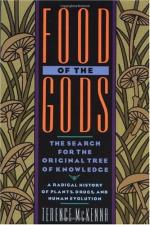
|
| Name: _________________________ | Period: ___________________ |
This test consists of 15 multiple choice questions and 5 short answer questions.
Multiple Choice Questions
1. What archaeological site has yielded a wealth of religious art?
(a) Catal Huyuk.
(b) Catal Hiyak.
(c) Catal Huyak.
(d) Caral Huyuk.
2. What was important in the evolution of modern humans?
(a) The thinning and shortening of the arm bones.
(b) Singing.
(c) The thinning of the cranial bones.
(d) Talking.
3. What does this form of civilization bring with it?
(a) Trade.
(b) All of these.
(c) Hoarding.
(d) Overproduction.
4. What artistic style does a painting from Inaouanrhat in the Tassili resemble?
(a) Early Spanish.
(b) Egyptian.
(c) Early African.
(d) Grecian.
5. Why would mushrooms have been especially noticeable on the African grasslands?
(a) Their inviting smell.
(b) Their colors would have been intriguing.
(c) None of these.
(d) All of these.
6. What female deities persisted in the patriarchal society?
(a) All of these.
(b) The cult of Kali.
(c) The divine Parusha.
(d) The cult of Mary.
7. Where is the answer located on how to achieve balance within the environment?
(a) In aboriginal reserves.
(b) In Third World countries.
(c) Neither of these.
(d) Both of these.
8. What factors have brought human evolution to a halt?
(a) Neither of these.
(b) Both of these.
(c) Our sheer numbers.
(d) The rise of communications.
9. After what point may a shaman have access to a superhuman plane?
(a) After he has trained for fifteen years under the tutelage of a shaman.
(b) After he has the experience of resurrection while in ecstasy.
(c) After he has gained the wisdom from the other plane.
(d) After he has graduated the "shamanism 101" course.
10. What do psychoactive plants allow a shaman to do?
(a) To inflate their ego.
(b) To feel good about himself.
(c) To manipulate the environment.
(d) Allow the healer to journey into an invisible realm of natural magic.
11. When did our estrangement from the conscious and the unconscious begin?
(a) About a thousand years ago.
(b) About three thousand years ago.
(c) About two thousand years ago.
(d) About four thousand years ago.
12. Why might Zoroaster have banned Soma?
(a) He thought of all altered states of mind as witchcraft.
(b) He objected to the bull sacrifice that was a part of the ritual.
(c) He objected to altered states of mind.
(d) He was greatly influenced by the Christian religion that was forming.
13. "Shamanic ecstasy is is an act of _______..."?
(a) Unveiling the world around us.
(b) Surrender.
(c) Honesty.
(d) Fortification.
14. What is the soul of poetic verse?
(a) Love.
(b) Ecstasy.
(c) Commitment.
(d) Truth.
15. Of the animals present at the dig site mentioned, where were they from?
(a) Africa.
(b) Asia.
(c) Europe.
(d) India.
Short Answer Questions
1. What was the name of the old woman who had provided the author with ayahuasca?
2. What is interesting to note about the Soma deity?
3. What was the wave made of that the author rode?
4. What happens to an individual in a state of ecstasy, according to Gordon Wasson?
5. What monstrous force(s) were born into modern times at the expense of a relationship with the natural world?
|
This section contains 500 words (approx. 2 pages at 300 words per page) |

|




